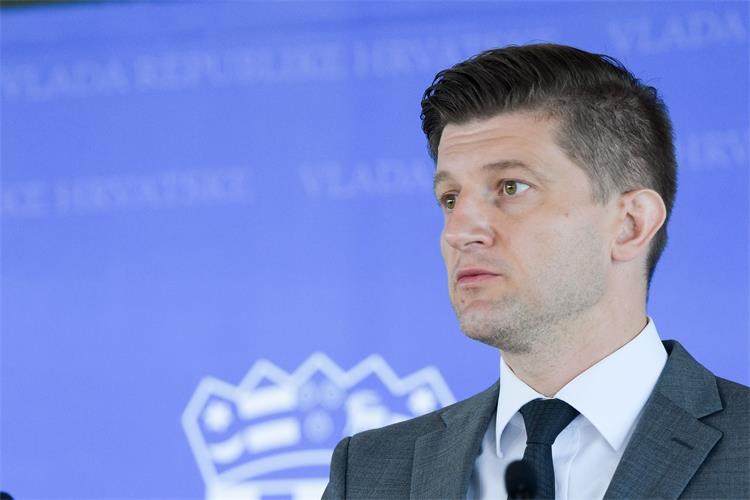


Responding to questions from the press after a cabinet meeting, he said the government's task was to always have an alternative. As for the success and long-term viability of public finance, he said it lay on the budget's expenditures side.
"Regarding the budget, I think we can be relatively satisfied at the moment. Naturally, with great caution. We should do everything to prevent the situation from becoming complex in some way."
Marić said the government had been dealing well with all the challenges since the start of the pandemic, but added that it was necessary to also think about the time after the pandemic given that, during this time of lower revenues and higher expenditures, the public debt had increased considerably.
Value of fiscalised receipts almost at 2019 level
Asked if he feared forecasts that the pandemic could shorten the tourist season this year again, which would have repercussions on the state budget, Marić said everything should be done to prevent that.
There have been no significant disruptions, as shown by data on arrivals, road tolls and fiscalisation, he said, adding that the value of fiscalised receipts this year to date was almost at 2019's level, with trade recording a 5% increase and tourism a drop of over 30%.
Marić said this month's results were satisfactory, with hotels and restaurants recording mild increases when compared with 2019, while bars recorded a 20% decrease. "But we have to remain very cautious and do all in our power to prevent the situation from becoming complex."
He said new COVID measures were adopted due to an increase in new cases in recent days in order for the peak tourist season to pass without significant disruptions.
Marić said the council for the introduction of the euro would convene next week, and that Croatia was complying with European Exchange Rate Mechanism commitments as planned.
They include meeting the Maastricht criteria and the biggest emphasis at the moment is on fiscal criteria, which we also expect to meet to keep Croatia in the "fiscal security comfort zone," he added.
He said the government remained committed to Croatia's entering the euro area on 1 January 2023.
Croatian coat-of-arms favourite motif for euro coin
Asked about his favourite national motif for euro coins, Marić said it had always been the coat-of-arms, finding it visually the most representative symbol of Croatia.
Text: Hina